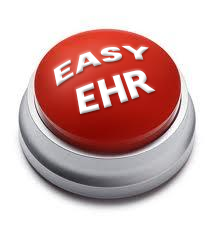Posted By Monique Dever On October 13, 2019
Will your staff use and adopt your new Electronic Health Record EHR software?

There are stories of new EHRs being bought and not used by the staff. Why is that? How do you make sure the EHR you select will get used? In one of our previous blog articles we discussed the 7+1 bonus steps for EHR selection. The most important +1 bonus talked about ease-of-use. Ease-of-use really is a critical step if you want your chosen EHR system to reap the benefits that it should provide.
When I talk about ease-of-use, I don’t mean simply that the program is easily navigated, but it should also fit well into your organization. Let me explain further by addressing two critical areas for a new EHR adoption: staff and workflow.
Staff: The question to ponder before choosing your EHR should be “To what degree is the system usable for ALL of our staff?” Your staff no doubt includes the tech savvy and not so tech-savvy, the veterans and the newbies, the change-accepting and change-averse. Many nurses, for example, have been nursing for many years, and are now being asked to change their world dramatically with the EHR. They are “people” people, not computer geeks. The new EHR must be easy-to-use and have buy-in of all your staff. Thus, your EHR software should:
- Be easy-to-learn, easy-to use. Does it utilize familiar features of other technology that most of your staff is already used to (such as surfing the web and mobile apps). Is the EHR software web based and use similar patterns as they are used to on other web sites (such as Amazon™, Facebook™ or Google™). Or was the EHR program written in the 80s and 90s? Before internet, old software was written with IT users or geeks in mind. Whereas, newer web software such as the one your staff is surfing is designed for average consumer and not an IT guru. So make sure you go with latest web and apps based EHR as it be easy-to-use and learn.
- Be intelligent and help each and every staff member. For example, Google™ search learns each and every user’s behavior and remembers patterns to reduce data entry. It auto-learns and auto-suggests saving time and effort. Similarly EHR software, using these features, can auto-populate frequently used information. For example, an intelligent EHR will learn and can help nurses auto-populate frequently used diagnoses, medications, allergies, immunizations and phrases. Let intelligent technology be a friend of the EHR users and reduce the burden of data entry. After all, staff wants to spend time with patients and not computers.
- Be built specifically for YOU. Many EHR programs are general purpose and try to serve many clinic types. If you are a local health department, you know that you have similarities with primary care but you are keenly aware that there are significant differences as well. An EHR which works well for a particular practice may not necessarily work well for you.
Workflow: This area is important to understand before moving forward with a selected EHR system. Will the new system disrupt your department, or assist in its operations. If the EHR system is not designed for your type of clinic, chances are it will be very disruptive to your organization workflow. For example, during patient check in process, a local health department collects household income which is used for sliding fee scale. If the primary care EHR does not support program-specific sliding fee scales, you will need to do manual workaround to make that EHR work. Similarly, if your EHR does not have built-in communicable disease capability, tracking TB patient contacts will complicate your workflow. Without the right EHR, your organization will end up working around your EHR (with manual workarounds) resulting in data being dispersed (in a mix of paper and electronic systems) and, eventually, staff will stop using the EHR.
People feel more at ease with familiarity. If the EHR workflow is optimized for your clinic type, it will of course minimize the learning curve and increase adoption speed by your staff.